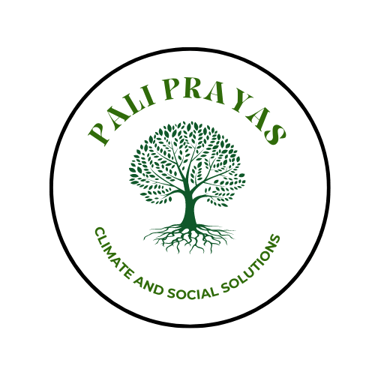Harnessing the Power of Information, Education, and Communication (IEC) in Waste Management
WASTE MANAGEMENT


The solution to effective waste management is not just about implementing rules and regulations but also when communities are encouraged to adopt a culture of accountability, awareness, and action. Information, Education, and Communication (IEC) plays a pivotal role in achieving this objective. In the context of Municipal Solid Waste Management (MSWM), the importance of the IEC cannot be overstated, especially considering its central role in the MSWM Rules 2016, and its importance can be understood from the fact that a sum of Rs 1,894.85 crore was incurred as Information, Education and Communications expenditure under Swachh Bharat Mission (Grameen) from 2014-15 to 2021-22. This blog examines the role that IEC plays in waste management, especially in light of the MSWM Rules of 2016. It also showcases the work that our organization is doing to educate the next generation of Gwalior-Chambal residents about waste management and climate change.
The Role of IEC in MSWM Rules 2016:
The MSWM Rules 2016 emphasize the importance of IEC as a key strategy for promoting waste segregation, recycling, and responsible disposal practices. Swachh Bharat Mission has mandated source segregation with a strong emphasis on IEC and BCC. The SWM Rules, 2016 direct Urban Local Bodies (ULBs) to create public awareness through information, education, and communication (IEC) campaigns and educate the waste generators to minimize waste generation, Source Segregation, and prohibit littering. IEC is a strategy to spread awareness through communication channels to target audiences to achieve desired positive results.
These rules recognize that effective waste management requires not only infrastructure and regulatory frameworks but also active participation and engagement from citizens. IEC campaigns are instrumental in achieving behavioral change, fostering community ownership, and promoting sustainable practices.
From a psychological perspective, IEC uses behavior change theory concepts for both individual and group behavior. Participation of people in these activities fosters a sense of belonging and a hope for community, boosting self-esteem and confidence. When people Engage in collaborative problem-solving, it builds social skills and empathy, enhancing interpersonal relationships, and psychologists believe that it affects people’s attitudes and conventions, and has an impact on behavior. IEC activities aim to encourage long-lasting behavioral changes by addressing these psychological aspects. IEC activities appeal to people’s values and beliefs by educating people about the effects of waste on the environment, encouraging social responsibility, and presenting workable solutions. This increases people’s incentive to adopt eco-friendly habits. Moreover, IEC fosters a pleasant atmosphere that encourages sustainable behavior by establishing social standards and positive role models.
Why our organization Focuses on IEC:
At Paliprayas, we firmly believe in the transformative power of IEC in waste management. Our initiatives in the Gwalior Chambal region include workshops, seminars, and interactive sessions tailored to instill sustainable practices and raise awareness about the pressing issues of climate change and waste management. Moreover, our commitment extends to the grassroots level, where we are conducting IEC activities in two wards of Gwalior. Over the past few months, We have given IEC programs that teach the youth about waste management and climate change. We have connected with over 5000 kids from 30 local schools via engaging seminars, school outreach initiatives, and educational resources.
In conclusion, the IEC plays a crucial role in driving positive change in waste management, as underscored by the Municipal Solid Waste Management Rules 2016. Cities like Panaji in Goa and Indore in Madhya Pradesh can source segregate over 95 percent of their waste owing to their extremely effective BCC (behavior change communication) initiative, carried out through rigorous information-education-communication (IEC) and capacity-building activities. By prioritizing education, communication, and community engagement, we can empower individuals and communities to take ownership of waste management processes and work towards building cleaner, healthier, and more sustainable environments
